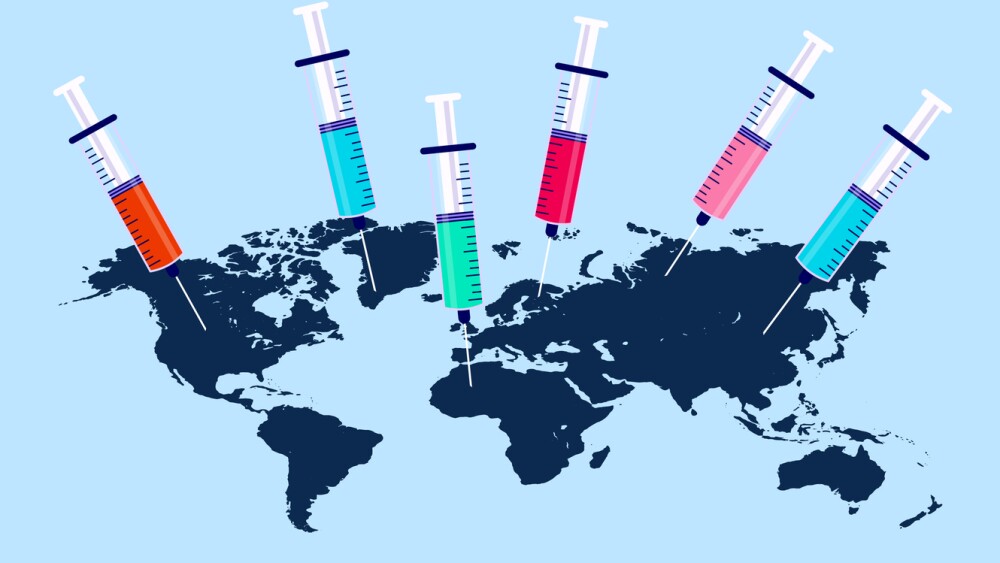- First Demonstration of Cross-Protection Against H2N2 Influenza and a Different H5N1 Strain -
QUEBEC CITY, Nov. 20, 2012 /PRNewswire/ - Medicago Inc. (TSX: MDG; OTCQX: MDCGF), a biopharmaceutical company focused on developing highly effective and competitive vaccines based on proprietary manufacturing technologies and Virus-Like Particles (VLPs), today announced results from an independent preclinical study on the cross-protection effects of Medicago's H5N1 VLP vaccine candidate ("H5N1 VLP vaccine"). The study was conducted under the National Institute of Allergy and Infectious Diseases' Animal Models of Infectious Disease Program. The results demonstrate that a single, non-adjuvanted, intramuscular dose of H5N1 VLP vaccine can protect against a different H5N1 strain or a strain of a different subtype such as H2N2, while a recombinant non-VLP H5 protein failed to provide similar protection against both strains in mice. In addition, the H5N1 VLP vaccine appears to have induced mucosal immunity in the lungs and plant lipids may have intrinsic adjuvant activity. Together, these findings show that Medicago's vaccines could provide broad protection against multiple influenza strains.
"I believe this is the first demonstration that a single intramuscular, non-adjuvanted dose of an H5N1 vaccine can protect against both a separate H5N1 strain and an H2N2 strain. The cross-protection provided by the H5N1 VLP vaccine makes it an attractive vaccine candidate for protection in a pandemic influenza outbreak," said Dr. Bart Tarbet, Research Assistant Professor, Institute of Antiviral Research, Utah State University who led the study.
"Our VLP vaccines may provide more extensive protection than any other influenza vaccine," said Andy Sheldon, President and Chief Executive Officer of Medicago. "Cross-protection would be vital in addressing a potential pandemic as influenza strains often mutate, rendering stockpiled vaccines ineffective. With our ability to rapidly produce a vaccine in less than a month from the identification of a flu strain, we are confident that our technology can play a key role in worldwide pandemic protection."
The study presents results that evaluate the cross-protection and effects of Medicago's H5N1 VLP vaccine in a mouse model. A mouse model was used as this enables a more detailed analysis of the immune response due to a wider range of tests available to evaluate the data. Mice were immunized with a single, non-adjuvanted, intramuscular dose of H5N1 VLP vaccine formulated for the Indonesia H5N1 Influenza virus at a dose of 10 ug. After 28 days, the mice were challenged with a lethal dose of either H5N1 Avian Influenza virus or an H2N2 Influenza virus strain that caused a pandemic in humans in the late 1950's. A recombinant H5 control protein was included to compare responses to the plant-made VLP.
A single, non-adjuvanted dose of 10 ug of H5N1 VLP vaccine protected 100% of mice from death following challenge with the Vietnam H5N1 strain. Importantly, a single, non-adjuvanted dose of 10 ug of H5 VLP vaccine protected 70% of mice from death following challenge with the H2N2 Influenza strain. The recombinant H5 vaccine protected about 20% of the animals in both challenges, which was similar to the placebo group. The results suggest that a single, non-adjuvanted, intramuscular dose of H5N1 VLP vaccine can protect against a different H5N1 strain or a strain of a different subtype such as H2N2.
Medicago has successfully completed Phase I and Phase II human clinical trials for its H5N1 VLP vaccine made for the Indonesia H5N1 Avian Influenza strain which demonstrated that the vaccine induced a solid immune response and was safe and well tolerated. Through additional preclinical animal studies, the Company continues to further explore the mechanism of protection conferred by the H5N1 VLP vaccine.
About Medicago
Medicago is a clinical-stage biopharmaceutical company developing novel
vaccines and therapeutic proteins to address a broad range of
infectious diseases worldwide. The Company is committed to providing
highly effective and competitive vaccines and therapeutic proteins
based on its proprietary VLP and manufacturing technologies. Medicago
is a worldwide leader in the development of VLP vaccines using a
transient expression system which produces recombinant vaccine antigens
in plants. This technology has potential to offer more potent vaccines
with speed and cost advantages over competitive technologies, enabling
the development of a vaccine for testing in approximately one month
after the identification and reception of genetic sequences from a
pandemic strain. This production time frame has the potential to allow
vaccination of the population before the first wave of a pandemic, and
supply large volumes of vaccine antigens to the world market. Medicago
also intends to expand development into other areas such as biosimilars
and biodefense products where the benefits of our technologies can make
a significant difference. Additional information about Medicago is
available at www.medicago.com.
About the National Institute of Allergy and Infectious Diseases (NIAID)
NIAID conducts and supports research - at the National Institutes of
Health, throughout the United States, and worldwide - to study the
causes of infectious and immune-mediated diseases, and to develop
better means of preventing, diagnosing and treating these illnesses.
For more information about NIAID and its programs, visit www.niaid.nih.gov.
Forward Looking Statements
This news release includes certain forward-looking statements or
forward-looking information for the purposes of applicable securities
laws and such statements and information are based upon current
expectations, which involve risks and uncertainties associated with
Medicago's business and the environment in which the business operates.
Any statements contained herein that are not statements of historical
facts may be deemed to be forward-looking, including those identified
by the expressions "anticipate", "believe", "plan", "estimate",
"expect", "intend", and similar expressions to the extent they relate
to Medicago or its management. The forward-looking statements are not
historical facts, but reflect Medicago's current expectations regarding
future results or events. These forward-looking statements are subject
to a number of risks and uncertainties that could cause actual results
or events to differ materially from current expectations, including the
matters discussed under "Risk Factors and Uncertainties" in Medicago's
Annual Information Form filed on March 29, 2012, with the regulatory
authorities. Medicago assumes no obligation to update the
forward-looking statements, or to update the reasons why actual results
could differ from those reflected in the forward-looking statements.
SOURCE Medicago Inc.




